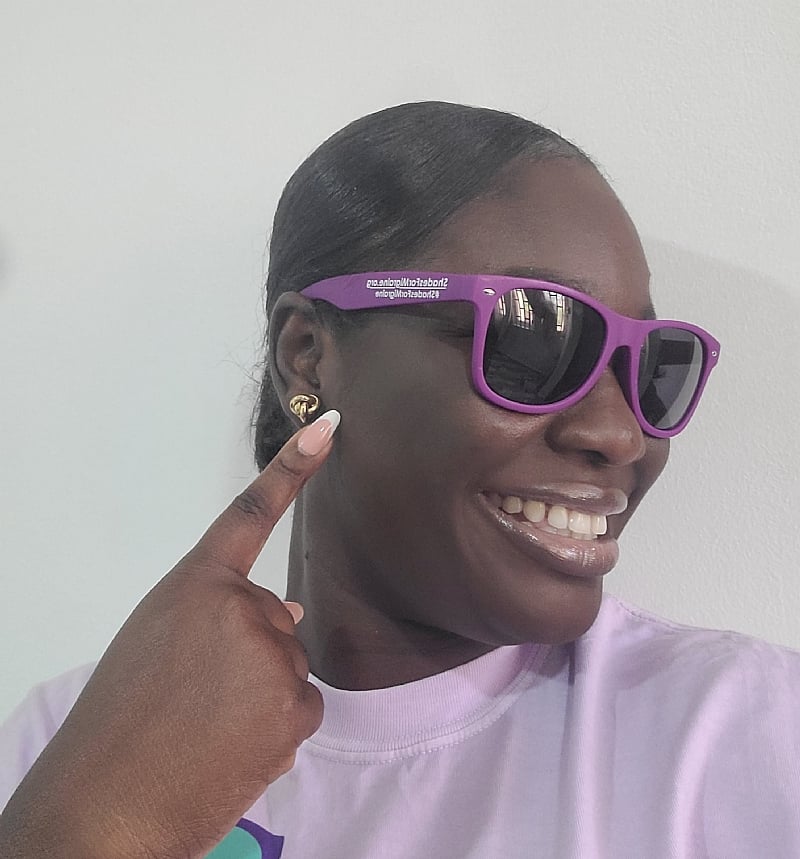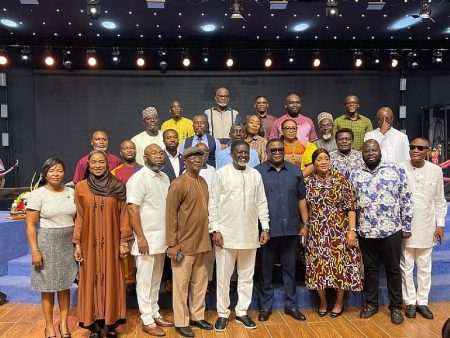Migraine, an often invisible and profoundly debilitating neurological disease, affects an estimated one billion people worldwide, making it the second leading cause of disability globally. This June, individuals across the globe, including Ghana, are joining forces to recognize Migraine and Headache Awareness Month through the Shades for Migraine campaign. This international initiative, spearheaded by the Association of Migraine Disorders, encourages widespread participation by inviting people to “Show You Care and Wear a Pair” – a simple act of donning sunglasses to symbolize solidarity and raise awareness for this frequently misunderstood condition. The campaign aims to shed light on the often unseen struggles of migraine sufferers and combat the stigma associated with this invisible illness.
The invisibility of migraine symptoms poses a significant challenge for those who live with it, often leading to skepticism, misunderstanding, and judgment from those who cannot comprehend the debilitating pain and other associated symptoms. Dr. Franchesca Fiorito, a neurologist and Shades for Migraine Medical Ambassador, emphasizes that this lack of visible symptoms contributes significantly to the challenges faced by migraineurs. For individuals like Daisy, a migraine advocate from Ghana, the Shades for Migraine campaign is more than just symbolic; it represents a deeply personal connection to a community that understands her struggles. In Ghana, where migraine is often dismissed as a mere headache, Daisy’s experiences highlight the pervasive lack of awareness and understanding surrounding this complex neurological condition.
Daisy’s journey with migraine began in September 2021 with a diagnosis of migraine without aura. Her experience reflects the common struggle faced by many migraine sufferers in regions where the condition is not recognized as a serious medical issue. Dismissive advice like “drink water and sleep” often replaces genuine medical support, leaving individuals like Daisy to grapple with intense and disabling symptoms without adequate care. Her path to diagnosis was arduous, involving multiple scans and MRIs, often met with confusion and limited understanding from healthcare professionals. The lack of awareness and proper medical training regarding migraine contributes to the prolonged suffering and delayed diagnosis experienced by countless individuals.
Before receiving a proper diagnosis, Daisy endured daily pain, highlighting the profound impact migraine can have on an individual’s quality of life. Some medications offered minimal relief, while others exacerbated her symptoms, further complicating her journey. The social impact of migraine is also significant, as Daisy explains, leading to a shattered social life and strained relationships. The unpredictable nature of migraine attacks, coupled with the lack of understanding from others, can create social isolation and further exacerbate the emotional burden of the disease. The misconception that migraine is simply a “common headache” trivializes the debilitating reality of this neurological condition and reinforces the stigma surrounding it.
Daisy’s story, while deeply personal, resonates with the experiences of millions worldwide. Migraine is the leading cause of disability for women under 50, highlighting the significant gender disparity in its impact. The lack of access to proper care, understanding, and support further compounds the challenges faced by migraine sufferers, particularly in regions with limited healthcare resources. The Shades for Migraine campaign aims to bridge this gap by raising awareness, fostering a sense of community, and advocating for improved access to diagnosis and treatment.
For Daisy, the Shades for Migraine campaign provides a sense of belonging and validation. Connecting with a community that understands the complexities of migraine offers solace and support, replacing the dismissive advice she often receives. The campaign empowers individuals like Daisy to feel seen and heard, reminding them that they are not alone in their struggle. The simple act of wearing sunglasses becomes a powerful symbol of solidarity, sparking conversations and challenging the stigma surrounding migraine. On June 21st, Shades for Migraine invites everyone to participate by taking a photo wearing sunglasses, sharing it on social media with the hashtag #ShadesForMigraine, and tagging @ShadesForMigraine to amplify their support. This collective action aims to make migraine visible, build a stronger community, and offer hope and encouragement to those living with this often invisible and debilitating condition. By participating in the campaign, individuals can contribute to a global movement that seeks to educate, destigmatize, and empower those affected by migraine.














